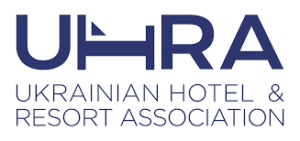
The Ukrainian Hotel & Resort Association (UHRA) is working to provide opportunities for Ukrainian hoteliers to be employed during forced emigration.
As UHRA President Iryna Sedletska said on Facebook, it is primarily about Poland and Romania.
“In Romania, due to friendly relations with the President of Federația Industriei Hoteliere din Româniaei Calin Ile, we managed to agree on priority assistance to refugees from Ukraine in finding work in hotels in Romania, as well as other areas of the Romanian economy, using the resource https://jobs4ukr.com/jobs With the start of preparations for the summer tourist season, hotels in the Constanta region (a resort region on the Black Sea) will agree with FIHR member hotels on the priority consideration of Ukrainians as job candidates,” Sedletska said.
Reportedly, Anastasia Romanenko has been appointed coordinator and regional representative of the UHRA in Romania on all issues of Ukrainian-Romanian cooperation on the placement of Ukrainian refugees in Romanian hotels and other premises, temporary employment and other support for members.

The Office of the UN High Commissioner for Human Rights (OHCHR) has documented 1,834 civilian casualties (1,761 a day before) in the country, including 691 (636) killed (from February 24 when the Russia invaded Ukraine to 24:00 midnight on March 14, 2022 (local time).
“OHCHR believes that the actual figures are considerably higher, especially in Government-controlled territory and especially in recent days, as the receipt of information from some locations where intense hostilities have been going on has been delayed and many reports are still pending corroboration,” the UN said in the document.
According to him, this applies, for example, to Izium (Kharkiv region), and Mariupol and Volnovakha (Donetsk region) where there are allegations of hundreds of civilian casualties. These figures are being further corroborated and are not included in the above statistics.
“Most of the civilian casualties recorded were caused by the use of explosive weapons with a wide impact area, including shelling from heavy artillery and multi-launch rocket systems, and missile and air strikes,” the UN said in the report.
According to confirmed UN data, some 135 men, some 99 women, 11 boys and seven girls killed, while the sex of 30 children and 409 adults has not yet been known.
Among the 1,143 injured, some15 girls and four boys, as well as 43 children, whose sex is yet unknown.
Compared to the previous day, two children were killed, according to the UN.
OHCHR said that in Donetsk and Luhansk regions, as of midnight March 15, there were 134 (122) dead and 448 (442) injured in government-controlled territory, and 39 (26) dead and 130 (130) injured in territory controlled by self-proclaimed “republics.”
In other regions of Ukraine under government control (Kyiv, as well as in Zhytomyr, Zaporizhia, Kyiv, Sumy, Odesa, Mykolaiv, Kharkiv, Kherson, Dnipropetrovsk, Cherkasy and Chernihiv regions), the UN recorded 518 (488) killed and 565 (553) wounded.
OHCHR notes the report of the Ukrainian Parliament Commissioner for Human Rights, according to which as of 10 a.m. (local time) 15 March, 97 children had been killed and more than 100 injured.
The increase in the figures in this report compared to the figures in the previous report should not be attributed only to new cases that occurred on March 13, since OHCHR also verified a number of cases that occurred in previous days during the day, according to the document.

Another batch of Starlink satellite Internet stations has been delivered to Ukraine, Deputy Prime Minister, Minister of Digital Transformation Mykhailo Fedorov said.
“Another batch of Starlink is in Ukraine. The future is in technology. Technologies today help Ukrainians, help the new good to defeat the old evil. The future belongs to Ukraine! Thank you Elon (SpaceX co-founder Elon Musk – IF)! Thank you Poland!” Fedorov said in his Telegram channel.
As reported, Musk refused to block Russian news agencies on the StarLink network.
The first batch of Starlink satellite Internet stations arrived in Ukraine on March 1, 2022, the second on March 10.
Starlink became active on the territory of Ukraine on February 27, 2022.

SkyUp Airlines (Kyiv) is ready to transfer 15 Boeing-737 aircraft on wet lease (with crew) to foreign airlines that do not fly to Russia and Belarus.
“We, the Ukrainian airline SkyUp Airlines, appeal to the global aviation family to support us and Ukraine in this fight. In our fleet, we have 15 medium-haul Boeing-737 aircraft, the average age of which is 12 years. They are all ready to work and available for wet leasing,” the airline said on its website.
SkyUp said that “by using our aircraft, you will help us continue our operational activities during the war and pay taxes to the state treasury, save 1,300 employees and support the affected Ukrainians as we will send every tenth dollar or euro to help the victims of the war.”
As reported, from 2:45 Kyiv time on February 24, 2022, the airspace of Ukraine is closed for civil traffic.

Ukraine’s spending on the development and procurement of weapons and military hardware in 2022 has been increased by UAH 67.57 billion with UK loans totaling 1.7 billion and aimed at bolstering capacities of the Ukrainian Navy.
The Ukrainian Verkhovna Rada adopted the respective bill by 342 votes on Tuesday.
The bill enlarges this year’s budget expenditures from UAH 1,525.930 trillion to UAH 1,593.5 trillion with the special fund’s growth to UAH 221.11 billion.
Meanwhile, the budget deficit ceiling was raised from UAH 188.8 billion to UAH 256.36 billion, including UAH 96.1 billion for the special fund.
In addition, the budget no longer has restrictions at the amount of 3% of the planned revenue for the provision of state guarantees, as well as restrictions at the amount of UAH 10 billion and UAH 20 billion, respectively, for the provision of portfolio guarantees and loan guarantees, in order to increase the national defense capacity.
The bill limits road fund expenditures. “The money will be primarily spent on repaying the state debt, defense, and the development and maintenance of roads,” the Servant of the People faction said in comment on the bill.
An explanatory note says that Ukraine will be implementing state investment projects to purchase two minesweepers from British suppliers, to deliver and service these minesweepers, to ensure the joint construction of eight missile craft, and to deliver and install weapons on the available ships. It is also planned to jointly build a frigate and to receive advisory and technical support for the construction of naval infrastructure, including the delivery of equipment.
At the end of January, the Verkhovna Rada ratified a framework intergovernmental agreement on loan funding of the development of the Ukrainian Navy. The agreement was signed in London on November 12, 2021, to envisage allocations for the construction of eight missile craft, the procurement of two minesweepers from the UK, and the opening of two naval bases in Ukraine.

Prime Minister of Ukraine Denys Shmyhal says that the new tax system will start working this week. “In close cooperation with the president, MPs, we will completely reform the economic model of Ukraine… Within a few hours after the laws come into force, the Cabinet of Ministers will adopt all the necessary by-laws to make the new tax system work this week,” Shmyhal said in his address Tuesday afternoon.
Thus, among the changes adopted by the Verkhovna Rada during martial law for medium and large businesses, the opportunity to use the single tax option will be significantly expanded.
In particular, enterprises with a turnover of up to UAH 10 billion will be able to switch to paying a social single tax, and all other restrictions on the number of workers and types of activities (except for excisable goods and gambling business) will be lifted.
Instead of VAT and income tax, entrepreneurs will pay only 2% of their turnover.
The draft law also contains many other positive innovations, including: individual entrepreneurs of the 1st and 2nd groups will pay a single tax on a voluntary basis, as well as individual entrepreneurs will not pay social single tax for their mobilized employees, as well as for martial law period individual entrepreneurs will not pay social single tax if they do not receive income.
In addition, the amendments provide that: sanctions for violation of the cash register law will not be applied until the end of martial law; from February 24 until the end of the year, payers on whose territories hostilities are being conducted are exempted from payment for land; VAT will not be paid for goods destroyed during the war, as well as for goods, transferred for defense needs; the excise tax on fuel will be abolished, and the VAT rate on these items will be reduced from 20% to 7%.
According to the prime minister, the government will make a decision today to ban inspections of businesses, except for those related to the safety and health of citizens.
“At the same time, the requirements for obtaining permits for a significant part of entrepreneurial activity will be abolished,” the prime minister said.